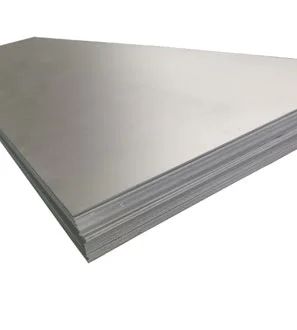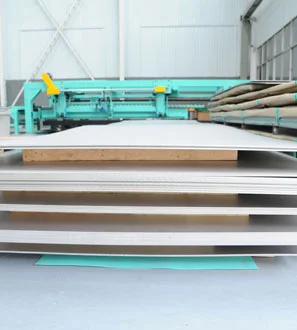Thank you for your
attention on Yesheng !
Corrosion Resistance Of Titanium Sheets In Ocean And Ocean Engineering
Titanium sheet metal is an excellent choice for marine and offshore engineering applications because of its high strength, low density, and excellent corrosion resistance. The corrosion resistance of titanium is due to the formation of a stable oxide layer on its surface that protects it from further oxidation. Let Yeshengti titanium sheet factory explore for you.
Corrosion Mechanisms About Titanium Sheet Metal in Marine and Offshore Environments
Marine and offshore environments are particularly challenging for metals due to the presence of saltwater, oxygen, and various contaminants. These environments can cause several corrosion mechanisms, including galvanic corrosion, crevice corrosion, pitting corrosion, and stress corrosion cracking.
Galvanic corrosion occurs when two dissimilar metals are in contact with one another in an electrolyte, such as seawater. The more active metal will corrode while the less active one will remain intact.
Crevice corrosion occurs in confined areas where there is limited oxygen and increased acidity. This type of corrosion can cause attacks on the metal surface.
Pitting corrosion is a localized form of corrosion where small pits can form on the surface of the metal. These pits can eventually lead to failure of the component.
Stress corrosion cracking occurs when a metal is under tensile stress and exposed to a corrosive environment. This type of corrosion can lead to sudden failure and is particularly dangerous.
Corrosion Resistance of Titanium Sheet Metal
GR2, GR5, GR1 titanium plate has excellent corrosion resistance due to its ability to create a stable oxide layer on its surface. This oxide layer forms quickly in the presence of oxygen and protects the metal from further oxidation. This protective layer also prevents galvanic and crevice corrosion.
Additionally, titanium is extremely resistant to pitting corrosion because it has a very low reactivity with chloride ions. As a result, it is an excellent choice for marine and offshore environments where there is a high concentration of chloride ions.
Finally, titanium has a high resistance to stress corrosion cracking due to its high strength and low reactivity with seawater. This resistance makes it an ideal material for components that are under tensile stress, such as propeller shafts and bolts.
Titanium sheet plate is an excellent choice for marine and offshore engineering applications due to its excellent corrosion resistance. It is resistant to galvanic and crevice corrosion, pitting corrosion, and stress corrosion cracking. Titanium's ability to form a stable oxide layer on its surface protects it from further oxidation and provides a barrier against corrosive elements. This makes it an ideal material for marine and offshore components that require high strength and resistance to corrosion.
 English
English  日本語
日本語  한국어
한국어  français
français  Deutsch
Deutsch  русский
русский 













